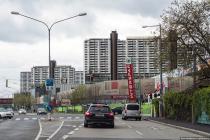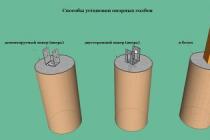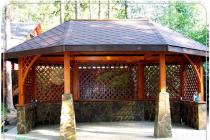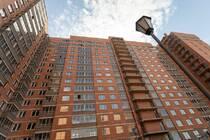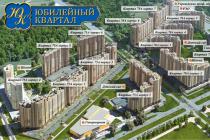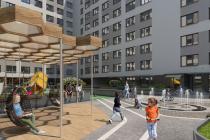THE MATERIALS TO WHICH YOU WISH TO GET ACCESS TO, THIS WEBSITE IS PROVIDED IN A GOOD BASIS AND FOR INFORMATION PURPOSES ONLY.
THESE MATERIALS ARE NOT INTENDED FOR PERSONS AND ARE MADE TO PERSONS IN THE UNITED STATES OR PERSONS WHO ARE RESIDENT OR LOCATED IN THE TERRITORY OF AUSTRALIA, CANADA, JAPAN OR ANY OTHER JURISDICTION IN WHICH THE GRANT OF THE POSSIBILITY OF ACCESS to a certain content infringes TO ANY applicable laws or LEGAL ACT.
The Materials do not constitute or form part of any offer or invitation to purchase securities or subscribe to securities in the United States, Australia, Canada, Japan, or in any jurisdiction in which such offers or sales are unlawful. Any securities issued as part of the offering have not been and will not be registered under the U.S. Securities Act of 1933, as amended, or under any applicable securities law in any state, province, country, jurisdiction or territory in the United States, Australia, Canada, or Japan. Accordingly, except where an exemption is applicable under the relevant securities laws, any such securities may not be offered, sold, resold, accepted, sold, rejected, transferred, handed over or distributed, directly or indirectly, in or on the territory. The United States, Australia, Canada, Japan or any other jurisdiction if any such action would constitute a violation of applicable laws or would require the registration of such securities in the relevant jurisdiction. There will be no public offering of securities in the United States.
The Materials are addressed and intended only for persons in the territory of the Member States of the European Economic Area who are "qualified investors" within the meaning of Article 2 (1) (e) of the EU Prospectus Directive (Directive No. 2003/71 / EC) (hereinafter - " Qualified investors In addition, in the United Kingdom, the material is made available and intended only for Qualified Investors, who are individuals with professional experience in investment matters falling within the scope of Section 19 (5) of the (Financial Assistance) Order 2005 under the United Kingdom Act on financial services and markets 2000 (hereinafter - " Order"), or who are high-income individuals subject to section 49 (2) (a) - (d) of the Order, as well as other individuals to whom they may otherwise legally be provided (all such individuals hereinafter together - " relevant persons Any investment or investment activity in relation to the Materials is only available to Qualified Persons in the United Kingdom and Qualified Investors in any member state of the European Economic Area other than the United Kingdom, and will only be carried out with such persons. Others should not rely on or take actions based on the materials or any part of their content.If you do not have permission to view the materials on this website, or if you doubt whether you have the right to do so, please leave this web page. Such materials are prohibited from publishing or otherwise redirect, distribute or send to or within the United States, Australia, Canada, Japan, or any jurisdiction in which such offers or sales are unlawful. has the right to distribute or p send them to, or from the United States, Australia, Canada, or Japan.
Confirmation of understanding and acceptance of the warning
I warrant that I am not located in the United States, nor am I a resident or located in Australia, Canada, Japan or any other jurisdiction in which it is illegal to access such materials, and I acknowledge that I will not transmit or otherwise transfer any material contained on this website to any person in the United States, Australia, Canada, Japan or any other territory where any such action would violate any local law or regulation ...
I have read and understood the above warning statements. I understand that the warning may affect my rights and agree to be bound by its terms. I confirm that I am allowed to access these materials in electronic form.
LSR-Stroy is trying to recover 600 million from the former bank of the Russian Orthodox Church. "Peresvet" issued guarantees for an advance on the construction of "Chizhik", but he himself stumbled before the contractors.
collage "Fontanka"
Information about the claim of LSR-Stroy against the Peresvet bank appeared on the website of the arbitration tribunal. The well-known company MK-20SKh LLC was attracted by a third party. The amount of more than 600 million and the composition of the participants leaves no doubt - we are talking about a guarantee for an advance payment to the former sub-general contractor for the construction of the Chizhik tram in the Krasnogvardeisky district. However, no bank will return the heads of the plaintiff company who left because of that ugly situation.
The more precise amount of the claim is 609.2 million rubles; the statement itself is not yet on the site, as well as the details of LSR-Stroy's claim. Nevertheless, the company confirmed that it is a question of demanding payments under a bank guarantee. “The bank is the guarantor of the contractor LLC MK-20SH, who took part in the implementation of the project for the reconstruction of the tram network in the Krasnogvardeisky district, - in order to avoid mistakes, the company once again clarifies. - The issues that LSR Group tried to settle out of court were not resolved on time, so now they have to be resolved in court. It is too early to comment on other details of the case until the end of the trial ”.
In "Peresvet" they could not promptly comment on the situation.
The story itself with the advance has been dragging on for several years and has turned out to be quite resonant. MK-20SKh with a 10% share was one of the shareholders of the Transport Concession Company (TKK) together with Leader Management Company and LSR Group. It was TKK that in May 2016 signed a concession agreement with the city on the construction of a private tram network in the Krasnogvardeisky district, the project was later named "Chizhik". The investor had to reconstruct the tracks on the right bank of the Neva and build a depot. The first two start-up stages of the network run from the Ladozhsky railway station to the depot on Khasanskaya street,. The third stage includes movement along the Mentors to Irinovsky Prospekt, the fourth - along Irinovsky and Ryabovsky Highways to Rzhevka, as well as along Potapov Street. The entire project is expected to be completed in the 4th quarter of 2018. The total volume of capital investments is 6.5 billion rubles, the general contractor is LLC LSR-Stroy. The total cost of operating and purchasing trams (by Stadler) is estimated at 33 billion rubles.
Subsequently, MK-20SKh transferred its package to LSR, but remained a sub-general contractor at the facility. Advance payment from LSR-Stroy amounted to 726 million rubles. Smolny hoped to launch the tram in September, then and. By that time, the contract with MK-20SX had already been terminated, the advance payment was not worked out, the tram went only in March 2018, and now the general contractor turned to the bank for a guarantee.
In addition to financial losses, LSR Group also suffered personnel losses. First Deputy General Director of LSR-Stroy Evgeny Vasiliev, Chairman of the Board of Directors of LSR Group Alexander Vakhmistrov, and then Deputy General Director of LSR Group Boris Murashov, left their positions in turn. The company itself still claims that these things are not related. “The departure of Alexander Vakhmistrov and Boris Murashov from the company was due to their desire to accept offers from other employers,” says the press service. - For example, Alexander Vakhmistrov, as you know, was not included in the list of candidates for voting in elections to the board of directors on his own initiative back in the spring of 2017. In the summer of the same year, he left the company, changing his field of activity to banking (advisor to the president of Bank Saint Petersburg).
Vakhmistrov refused to talk to the reporter, citing lack of time. But Boris Murashov did not hide the fact that his departure was associated with the loss of the advance. “I openly worked with this organization, chose it as a partner, and she set me up,” he told Fontanka. “As far as I know, they simply paid off their previous loans by means of an advance, instead of purchasing materials. Well, a small part was invested in production. Therefore, of course, this situation affected my departure. "
Fontanka wrote in detail back in 2013, from 465 million in 2012 to 701 million in 2013. One of the founders of the company turned out to be Vyacheslav Shilin, the nephew of the deputy head of the committee for the development of transport infrastructure Anton Sukhanov. Shilin resigned from the founders, but the company gained serious momentum. In 2015, MK-20SKh had 2.2 billion contracts. Considering that Sukhanov was Murashov's deputy at the KRTI, many received reasons to assert that the contractor for Chizhik was not brought in by accident.
“It was the largest tramway construction and repair company in St. Petersburg,” Murashov explains. - They had their own production of turnouts, they cast special inserts. And there is nothing special in the fact that it was she who was our partner, no. But I cannot explain how they disposed of the advance payment. I would say the roof has gone. "
It was not possible to promptly get through to the once largest company in the city, Fontanka, but its former co-owner Alexei Astakhov does not confirm Murashov's version. “The advance payment came in several tranches, and the distribution was coordinated directly with the management of LSR-Stroy,” says Astakhov. - We did not patch any old holes. In fact, the money went to launch a new production, to increase the staff of the MK-20СХ itself and its contractors. We have brought this state to 400 people, and the tax base, salaries, and payments to self-regulating organizations have increased accordingly. All contractors received their advances. " According to the ex-co-owner of the company, the contractors actually went to the facility on their word of honor and without permits, then they began to issue fines, and then, for formal reasons, refused to sign the executive documentation - hence the unworked advance payment. “The entire 2016 and 2017 years passed under the sign of promises and losses,” Astakhov says, “and when MK-20CX left the TKK shareholders, it was no longer needed.”
At the same time, the MK-20SX started having problems on other contracts, which she managed to gain. A year ago, Komstroy for the reconstruction of Bogatyrsky Avenue from Gakkelevskaya to Baikonurskaya Street and the continuation of Komendantsky Avenue from Shuvalovsky Avenue to Glukharskaya Street. Advance payment of 130 million was not spent on time. At the same time, the term of the bank guarantee from the same "Peresvet" has already expired.
In general, this bank provided guarantees for many construction and road projects; , for contractors of the Directorate of Transport Construction - for 3.2 billion. MK-20SH, in addition to Chizhik, Bogatyrsky and Shuvalovsky, attracted the bank to repair tram tracks on Peterhof highway (856 million) and Serdobolskaya Street (121 million). The city is trying to enforce these guarantees in the courts; affairs at different stages. For example, in mid-February, the second instance obliged the bank to pay the komstroy about 90 million rubles.
Even earlier than the MK-20CX, in October 2016. On April 19, 2017, the Bank of Russia decided to sanitize Peresvet using the bail-in mechanism; more than 70 of its creditors agreed to convert 85% of liabilities into the bank's capital in the amount of 69.7 billion rubles, another 66.7 billion is allocated by the Central Bank. The financial and economic department of the Russian Orthodox Church (ROC), once the largest shareholder, has dropped out of the bank's affiliates. The main bank of Rosneft, the All-Russian Regional Development Bank, became the sanatorium. As Delovoy Peterburg previously reported, the same bank intends to take ownership of MK-20CX in some form.
Nikolay Kudin,
"Fontanka.ru"
Buyers of apartments love to be good and inexpensive. Some choose studios. Others are kitchen-dining rooms. Still others - finished finishing and furnishings. Is this the right choice? What does the European experience of apartmentography say?
The autumn round table "Cities 812" on residential real estate was attended by:
Ekaterina Gurtovaya, Marketing and Sales Director of YIT St. Petersburg Dmitry Karpushin, Executive Director of the Institute of Economic Security Ekaterina Pchelkina, Head of Marketing Department, RosStroyInvest State Corporation
Tamara Popova, Head of Product Development and Concept Development at Severny Gorod Oksana Androsova, Head of LSR Group's architectural and design group Anzhelika Alshaeva, Managing Director of KVS. Real estate agency"
- According to some estimates, the share of studios in the primary market of St. Petersburg has exceeded 23%. Can the studio be made comfortable?
The studio can be comfortable if fairly simple and clear ergonomic rules are followed. They must be taken into account even at the design stage. If at this stage furniture is "arranged" in the apartment, taking into account the dimensions of the apartment, openings of doors and windows, then many mistakes can be avoided by ensuring comfortable living in the future. There are certain lower bounds though. Those minimal studio areas that have now become the most popular on the market (25–27 sq. M.) Hardly makes sense to reduce. Otherwise, you can move the furniture as much as you like - this will not make the apartment comfortable.
Ekaterina Gurtova. Indeed, the share of studios on the market has become quite significant now. In Finland and other countries of Western Europe, compact studio apartments have long been widely recognized, becoming one of the attributes of the modern European lifestyle. We have recently opened two show rooms of studio apartments in our comfort class complexes Novoorlovsky in the Primorsky district and INKERI in the city of Pushkin. The showrooms feature life-size studio apartments with balconies (20 and 25 sq. M. Respectively), complete with complete Finnish turnkey finishing, furnishings, household appliances and decoration. In such a studio apartment, with proper use of space, you can very conveniently arrange everything you need for a comfortable stay.
The studio's main discomfort is social. Unfavorable environment, a lot of random people. As for the layouts - there are unsuccessful studios, but in the studio there are even fewer opportunities to make a bad layout than in a 3-room apartment.
- It is believed that a large number of studios in the house is bad. How many studios, one-room, two-room, etc. apartments in the house is optimal?
Ekaterina Gurtova. People should be clearly aware at the time of purchase: if continuous studios are provided in an object, then this can also predetermine the formation of a certain social environment, especially if it is an economy class object. If the developer initially formed an investment product, especially in the “economy”, where only small-sized apartments are offered at a low price, then there will be “investment apartments” around, which are sold or rented, and many changing tenants appear nearby. However, the situation is fundamentally different if the developer provides for a well-thought-out, balanced apartment. So, in all our complexes in St. Petersburg, the apartment design is distinguished by its balance - the presence of a variety of apartments, which allows families of different composition to live, and everyone will feel quite comfortable.
The weak side of studios is mainly social in nature: such apartments are most often rented or resold. In any case, this is due to the frequent change of neighbors. An unpredictable and increased rotation of tenants is uncomfortable for residents of other apartments and ultimately affects the maintenance and condition of common home property, because tenants do not treat it as their own.
In my opinion, the ideal scenario is the separation of objects with spacious apartments (3-4-room) and objects with a predominance of small-sized housing. An excessively wide assortment usually shows a reduced liquidity of large apartments, if they are adjacent to studios and small one-bedroom apartments.
The prevalence of one format or another in a project largely depends on the class of housing. In high-end residential complexes, you will never find studios, and in comfort-class properties there are hardly such exclusive formats as penthouses or duplex apartments, they mostly prevail in the premium segment.
Depending on the purpose of the acquisition, you need to study the characteristics of the residential complex. Family buyers should pay attention to the apartment design: if there are, relatively speaking, 90% of studios in the house, then this is not a very suitable option.
According to our analytics, one-room apartments remain the most popular. Their share in the sales structure reaches 50%. They are followed in approximately equal shares by studios and two-room apartments. In the current economic realities, there is no tendency to increase the area of apartments yet. For 1.5 years, the average area sold in the projects of our company has not decreased.
There is no criterion for optimality. The developer wants to sell as many housing as possible, residents want as few apartments for rent as possible. We can say that if in a house more than 60% of small-sized housing (studios and one-room) is bad, this is already a tangible factor of influence on the social environment.
- And what does the European experience of apartmentography say?
Almost all categories of buyers are in demand for apartments with a combined kitchen and living room space. For several years now, our group has been building houses with such apartments. A large kitchen-living room makes it possible to comfortably equip a place of communication for all household members, visually expands the space.
We advise you to pay attention to the useful space in the apartment: the more there is, the more effective the layout is. As a rule, the area of residential and frequently used premises is increased by reducing the hallway or bathroom. But there are exceptions to any rule. For example, to argue that large corridors eat up the area of living rooms is not always justified: the competent use of the corridor space can make it quite functional by increasing the usable area of the rooms.
Our group of companies develops apartments for each of its objects individually. The factors of influence are the location of the residential complex, the needs of customers and the class of the object. The class of the object determines not only the footage, but also the structure of the offer by types of apartments. So, for example, the rejection of studios in the apartment design is already an established trend for business-class facilities. The share of studio apartments in the "business" is minimal or they are absent altogether, as, for example, in the residential complex "Two Angels" on Respublikanskaya. The share of multi-room apartments in such residential complexes, respectively, is higher than in "comfort". In the business class, larger rooms (4–5 rooms) also appear. Naturally, apartments are 10-15 sq. M larger on average. m. The trend characteristic of comfort-class residential complexes under construction in the region is a smaller cut of apartments. In urban projects, apartmentography is formed depending on the prestige of the area.
When designing our residential complexes, we carefully think over all the nuances of apartment design. We add flavor to each project. So, in the G9 club house, which we will build on Gribaleva Street, a number of rare types of apartments are presented: with view terraces, with the possibility of installing a fireplace. We have implemented unusual layouts in the "New Sertolovo" project - apartments with bay windows.
The offer follows consumer preferences. 20 years ago, European studios seemed exotic to us, today Russians are not surprised - they are used to it. Requests for “minimizing layouts” have generally been met. We can expect that we will now get used to finished apartments.
40% of buyers want a combined kitchen-dining room, the so-called European planning, this optimizes the area. Another 40% want a separate kitchen and a separate living room - but this is more often the older generation, this is a tribute to habits. This does not seem rational - in the mass segment, this usually means a cramped kitchen and a rarely, if not almost never, used living room. Then the person has a choice: to dry the bedding in the living room or in the bathroom? Both do not look quite comfortable, but there is no place for a laundry room. This question is especially relevant in the cold or rainy season, when the balcony does not save (usually cluttered, because there are not enough storage rooms in the apartment).
And another 20% of buyers hesitate, choosing between a separate kitchen and a European kitchen-dining room. As a result, they will swing in favor of the “euro”, and this will consolidate the trend.
The same will happen with other rooms: it is better to have a small bedroom, but set aside a pantry for clothes, destroying clutter in the house.
- There are forecasts that mass housing will decrease in area and decrease in ceiling height. Your opinion?
Over the past 6 years, the average area of an apartment in the mass segment has decreased from 60 to 47 sq. m. This is also due to the optimization of layouts. Another factor is also important for objects located in the city limits: people today want to spend more time in public, cultural and leisure places (and not at home in front of the TV). And the trend to optimize the area of apartments is connected with this: if a family spends a lot of time outside, it no longer needs to have a large apartment and large rooms. I think this trend will continue in the coming years.
The height of the ceilings will behave like an area: will decrease. Hopefully, not very much.
Ekaterina Gurtova. If we talk about mass housing, then in an unfavorable economic situation, all developers will try to minimize the purchase price for the client as much as possible. Small apartments with a low budget are always in demand in any market - and this is typical for all European countries.
People are spending less and less time at home. Many people already perceive it as a norm that they come to the apartment only to rest a little after work - in fact, to sleep and have breakfast, even on weekends people have become little at home.
In a developed society, the dominant attitude is not to accumulate at home all kinds of things that you almost never use. And this trend, which is very favorable from the point of view of design and organization of space, corresponds to the tendency to reduce the size of the apartment.
As for the height of the ceilings, here buyers' sensitivity is much greater than in the question of the area of the apartment. Ceilings with a height of, say, 2.3 meters will never be in new apartments.
Vadim Shuvalov
The unknown company Glavinvestproekt North-West JSC entered the residential real estate market of St. Petersburg. Registered in Moscow, it rents a land plot on Yuri Gagarin Avenue from FGC UES and plans to build a business and comfort class residential complex on it.
The Commission for Land Use and Development of St. Petersburg has postponed the issue of exceeding the maximum height parameters for the construction of a business-class residential complex at 32, Yuri Gagarin Avenue.
The members of the commission were embarrassed by the fact that unknown companies in the city with an authorized capital of 10 thousand rubles, Glavinvestproekt North-West and Business City, were taking on the project. The declared height of the object is 80 m, while the allowable one is 40 m. Officials and deputies were also embarrassed by the 100% foreign capital.
But the questions of the head of the commission, the vice-governor, were not at all caused by the height, but by the lack of understanding of who is going to build houses on the St. Petersburg land.
“And here we fully support his position,” a member of the KZZ, a deputy, told the media. - The question is that it is not clear, and with whom in general we are dealing? Do not understand where the companies came from, each with a capital of ten thousand. And then there will be defrauded real estate investors, who will decide? In addition, the developer has no encumbrances, he should not build any social facilities, because the land is owned by FGC UES.
Based on what do you draw conclusions
The applicant Glavinvestproekt North-West JSC and the developer Business City LLC told Smolny something that was not very impressive. According to the documents submitted to KZZ and available to the media, the first company has 15 employees, the second has 20. The authorized capital - 10 thousand each. With the origin of Business City LLC, everything is more or less clear: the founder and CEO is Zhumagul Turarovna Abdieva. She, according to the SPARK system, is the general director, known, in particular, for the Leader Tower skyscraper on Constitution Square. The co-owner of the company in the media is called a communist, State Duma deputy from the Communist Party of the Russian Federation, deputy chairman of the State Duma Committee on Energy.
Another deputy is also related to Leader, also a communist, parliamentarian of the ZakSa (since 2007 he collaborated with Leader Group GC, where from 2015 he served as chairman of the board of directors, responsible for strategic development issues). Now, according to him, he only owns shares in the company, which have been transferred to trust. “I have no right to engage in operational activities or hold paid posts, but, thank God, no one can deprive me of my property, including participation interests,” the communist told Fontanka. When asked whether Business City LLC is a subsidiary of the Leader Group of Companies, the deputy answered shortly: “No comment. I do not know, on the basis of what you draw conclusions, what rumors and conjectures. "
Nevertheless, as reported by Oksana Dmitrieva, the gentleman was present at the KZZ meeting, where the project of a residential complex on Gagarin Street was discussed.
The deputy of the Legislative Assembly of the Communist Party of the Russian Federation and the former Leader Group developer Alexander Rassudov told his colleagues why FGC UES was interested in the project: “This is an outdated network economy. FGC has invested significant enough funds to create a new network economy in exchange ... and by agreement with the city it was initially assumed that FGC produces all these orders, taking into account the fact that later this territory could be involved in economic turnover. "
And following the meeting, he does not support the decision of his colleagues. “Some members of the commission incorrectly presented information about the intentions of Glavinvestproekt North-West. During the meeting, the speaker Alexander Mulberg clearly said that the developer is taking on social obligations to the residents of the area, ”the parliamentarian said.
According to this information, "Glavinvestproekt North-West" will build a kindergarten for 350 children, as well as a registry office in the Moscow region. In addition, the owner of the land plot, FGC UES (Glavinvestproekt North-West rents this area for the construction of residential complexes), has already begun cabling overhead power lines in two blocks of the Moskovsky District. This will cost about half a billion rubles.
“Thus, about a billion rubles will be invested in the construction of the city's infrastructure,” the parliamentarian said.
The site for future construction is located on the territory of the former Chesme substation near the intersection of Gagarina and Tipanova streets. According to Dmitrieva, last year the previous KZZ structure agreed to change the development zone on this site. Now there is a zone TD1-1_1 - that is, a business zone with a permit for residential development for densely built-up areas, which is a "clear stretch" for this site, notes Oksana Dmitrieva.

Project "Studio 44" for the construction of a residential complex at this place
The origin of the project applicant - Glavinvestproekt North-West JSC - was extremely interested in KZZ members. “Such interesting questions are being clarified ... FGC is organizing a company in Cyprus with 100% foreign capital. This means that our money from subscribers goes there, offshore, through this company, do you want to say that? " - asked the deputy of the Legislative Assembly Alexei Kovalev.
The media tried to find the owners of the mysterious company. Judging by the documents mentioned above, 100% of this company belongs to Listpoint Investments Limited. According to SPARK, traces of the liquidated Glavinvestproekt LLC, which was registered in Novosibirsk, lead to the Cypriot offshore company. However, if you check the details of the island's Department of Registration and Official Liquidation of Companies, the offshore property belongs to two other companies. These are Isiola LTD, registered in the Virgin Islands, and Cypriot Sonan Limited. Moreover, Andrey Rappoport is on the list of owners of the latter.
The surname Rappoport is known to everyone who knows at least the slightest bit about the state of affairs in the Russian power grid business. Andrey Natanovich ranks 87th out of the 200 richest people in Russia according to Forbes. His fortune is estimated at approximately 1 billion. According to open data, in 2004-2008 - a member of the board of JSC RAO UES of Russia, in 2002-2009 - chairman of the board of JSC FGC UES, in 2012-2013 - first deputy and advisor to the head of JSC Rusnano Anatoly Chubais. According to SPARK, Rappoport is a former member of the boards of directors of more than a dozen regional power grid companies. At the moment he is the Chairman of the Coordination Council of the Moscow School of Management "Skolkovo".
It is curious that Andrey Rappoport, with the offshore Garissa Ltd., is also found in the Offshore Leaks database. The information was released in May 2016 by a consortium of investigative journalists (ICIJ), who, in addition to Rappoport, called another 15 Russians billionaires with Panamanian offshores, and in total there are several thousand Russian citizens in their database.
By the way, the second owner of Cyprus-based Listpoint Investments Limited, Isiola LTD from the Virgin Islands, also appears in the same Panama papers.
Recall that the project of a residential complex at the intersection of Gagarin and Tipanov was completed by Studio 44 and approved by the City Council in December 2016. "The authors contrasted the chaotic surrounding buildings with a strict symmetrical composition of two high-rise buildings-arches in the form of the letter" P "and a huge square behind them." According to Nikita Yavein, he was inspired by the work of St. Petersburg architects who left for Moscow.
The total area of buildings is more than 234 thousand square meters. m, including - 124 thousand sq. m of business and comfort class housing. Penthouses will be located on the upper floors of the "arches" houses, and the local "Gostiny Dvor" and a fitness center will be located on the lower floor. A cascade fountain will be erected on a small piazza between the outer and inner buildings.

